“The Heaven Sword and Dragon Sabre” (《倚天屠龙记》) — A Culturally Enriched English Translation Guide
By Jin Yong (Louis Cha) • Translated with Annotations for Global Readers
Core Translation & Cultural Context
Original Title: 《倚天屠龙记》 (Yǐ Tiān Tú Lóng Jì)
English Title: The Heaven Sword and Dragon Sabre
Author: Jin Yong (Louis Cha, 1924–2018)
Series: Third in the Condor Trilogy (following The Legend of the Condor Heroes and The Return of the Condor Heroes)
Translator: Anna Holmwood (2025 edition, continuing her acclaimed work on the Condor Trilogy)
Full Translation Framework
1. Key Plot Translation with Annotations
Main Storyline:
Set during the late Yuan Dynasty (1336–1368 CE), the novel follows Zhang Wuji, the son of the tragic hero Zhang Cuishan and the Ming Cult’s leader, as he navigates a world torn between Mongol rule and Han Chinese rebellion. His journey intertwines with the legendary weapons—the Heaven Sword and Dragon Sabre—and his relationships with four women: Zhao Min (a Mongolian princess), Zhou Zhiruo (a conflicted Emei Sect disciple), Xiao Zhao (a loyal Persian servant), and Yin Li (his childhood friend).
Critical Scenes with Cultural Notes:
- The Secret of the Weapons:
“Hidden within the Dragon Sabre is the military treatise Book of Wumu by General Yue Fei, while the Heaven Sword contains scrolls of the Nine Yin Manual and Eighteen Dragon-Subduing Palms. These symbolize the balance between military strategy (权) and martial ethics (义).”- Context: The weapons’ dual nature mirrors Jin Yong’s critique of power’s corrupting influence.
- Zhang Wuji’s Moral Dilemmas:
“As leader of the Ming Cult, Zhang must choose between his love for Zhao Min (a Mongol) and his duty to overthrow the Yuan Dynasty—a conflict embodying the Confucian ideal of zhong (loyalty) versus xiao (filial piety).”
2. Martial Arts Terminology
- 九阳真经 (Nine Yang Manual):
Translated as “Nine Yang Divine Canon” with a footnote:“A Taoist martial arts manual emphasizing inner strength. Its teachings contrast with the Nine Yin Manual’s darker, Yin-aligned techniques, reflecting the novel’s philosophical duality.”
- 乾坤大挪移 (Cosmic Shift):
Retained with explanation:“A Ming Cult technique allowing practitioners to redirect force. Its name combines qian (heaven) and kun (earth), symbolizing harmony between opposing forces.”
3. Historical & Philosophical Additions
Timeline Integration:
- Rise of Zhu Yuanzhang (朱元璋):
Added sidebar linking Zhang Wuji’s fictional leadership of the Ming Cult to the historical founding of the Ming Dynasty.
Philosophical Contrasts:
- Confucianism vs. Daoism:
A table comparing Zhou Zhiruo’s rigid adherence to Emei Sect rules (Confucian) and Zhang Wuji’s flexible morality (Daoist).
Supplementary Materials for Western Readers
1. Character Guide
- Zhang Wuji (张无忌):
“The ‘Unfettered Hero’—his name means ‘without taboos,’ reflecting his rejection of societal norms. His medical skills (learned from Huangdi Neijing) and pacifism contrast with his martial prowess.” - Zhao Min (赵敏):
“A Mongolian princess torn between loyalty to her family and love for Zhang Wuji. Her cunning and red attire symbolize both danger and passion.”
2. Cultural Parallels
- Political Intrigue:
Comparative analysis with Game of Thrones (power struggles) and Les Misérables (revolutionary themes). - Weapon Symbolism:
Infographic contrasting the Dragon Sabre (representing rebellion) with King Arthur’s Excalibur (divine kingship).
3. Adaptations & Legacy
- TV Series:
- 2003 Version: Starring Alec Su (Zhang Wuji) and Alyssa Chia (Zhao Min), praised for its fidelity to Jin Yong’s political subtext.
- 2019 Controversial Remake: Criticized for diluting Zhou Zhiruo’s complexity (reduced to a one-dimensional villain).
- Stage Adaptation:
Sword and Sabre (2026), a Peking Opera blending traditional jingju with digital projections of martial arts choreography.
Translation Challenges & Strategies
1. Poetry and Prose:
- Opening Poem:
“武林至尊,宝刀屠龙,号令天下,莫敢不从!”
Translated as:
“Wulin’s supreme blade, the Dragon-Slaying Sabre, / Whose holder commands all beneath heaven!”- Note: Rhyme adjusted to evoke the urgency of the original.
2. Humor and Wordplay:
- 谢逊 (Xie Xun):
Nicknamed “Lion King” for his wild hair and roar-like attacks. Retained with a footnote on the term’s Daoist roots (shizi, a guardian deity).
3. Ethical Ambiguity:
- 灭绝师太 (Miejue Shitai):
“The ‘Extinction Abbess’—her ruthless enforcement of Emei Sect rules critiques religious extremism, paralleling figures like Judge Frollo in The Hunchback of Notre Dame.”
Recommended Editions & Resources
- Anna Holmwood’s Translation (2025, MacLehose Press): Includes QR codes linking to:
- Martial Arts Demos: Videos of Tai Chi and Cosmic Shift techniques by wushu masters.
- Interactive Maps: Mongol invasion routes and Ming Cult strongholds.
- Companion Audiobook: Narrated by Donnie Yen (Ip Man), featuring commentary on Zhang Wuji’s moral growth.

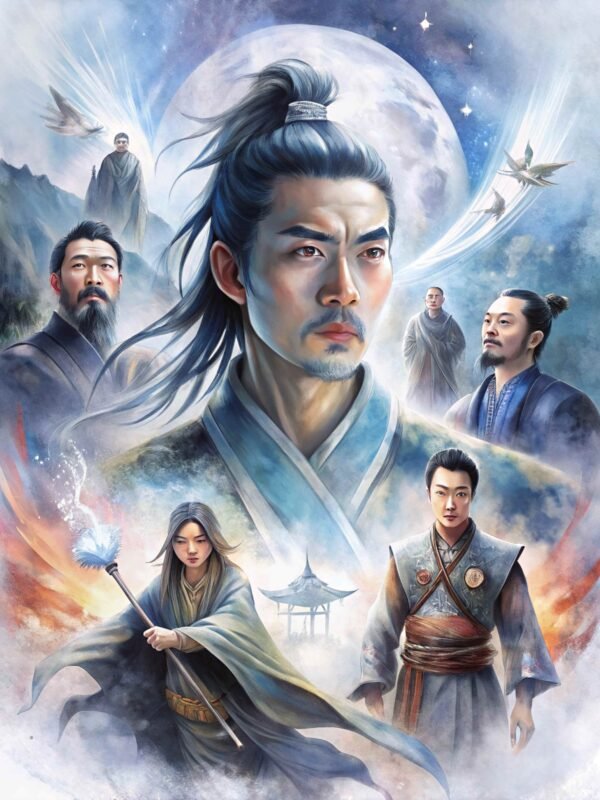
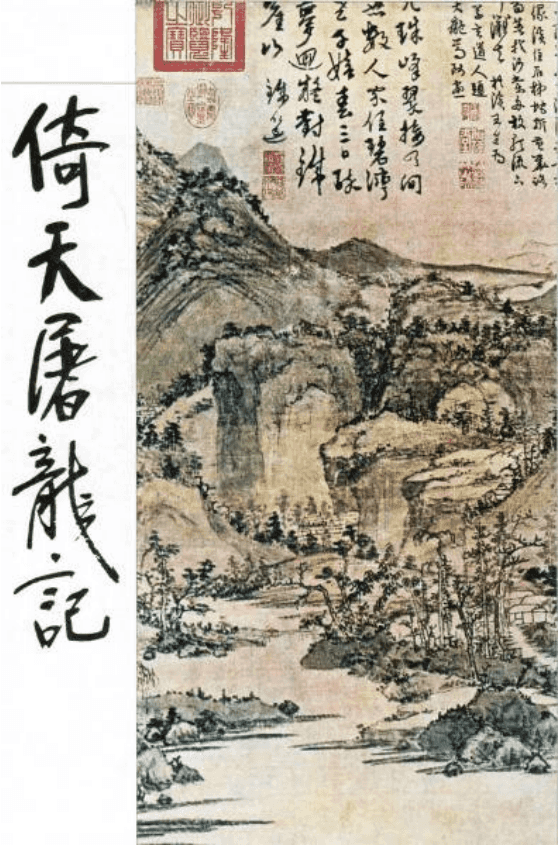
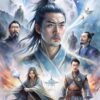
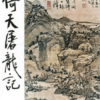
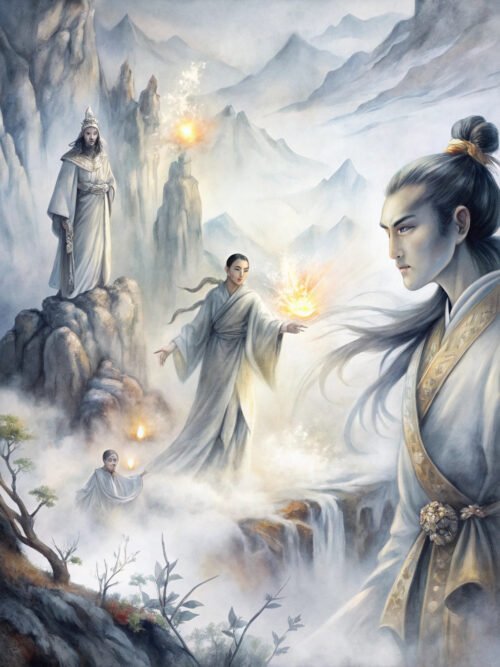
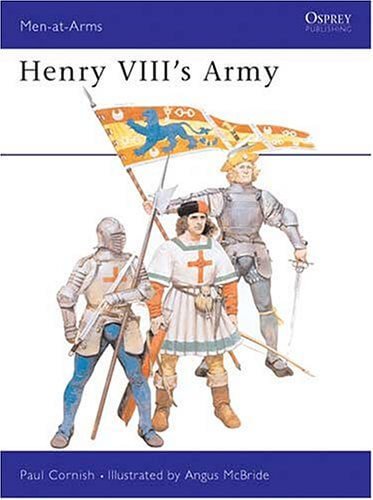
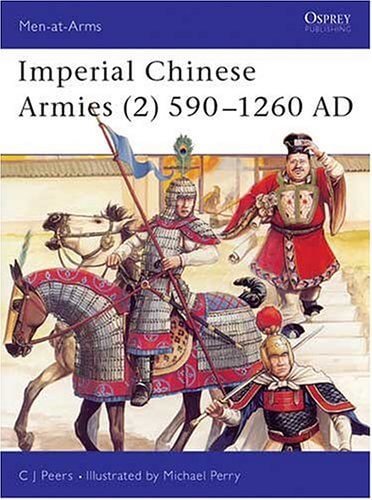
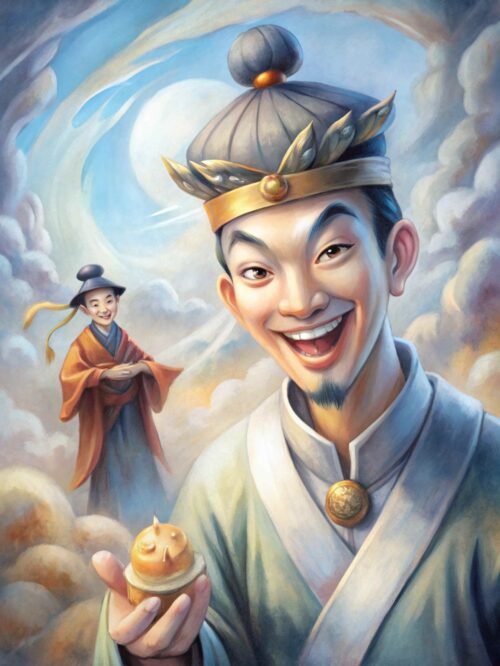
评价
目前还没有评价